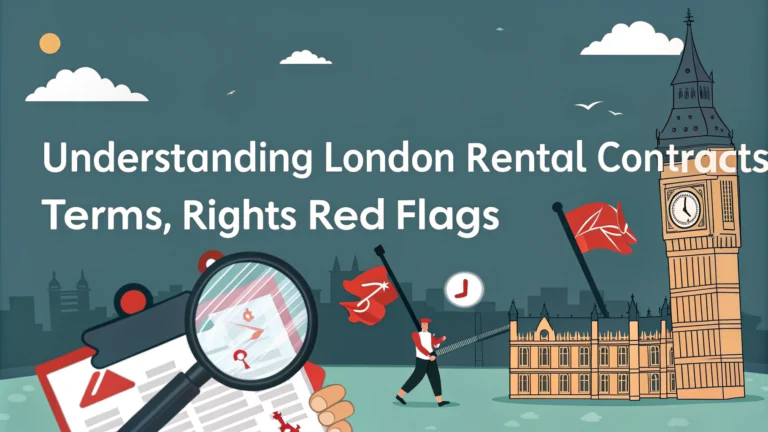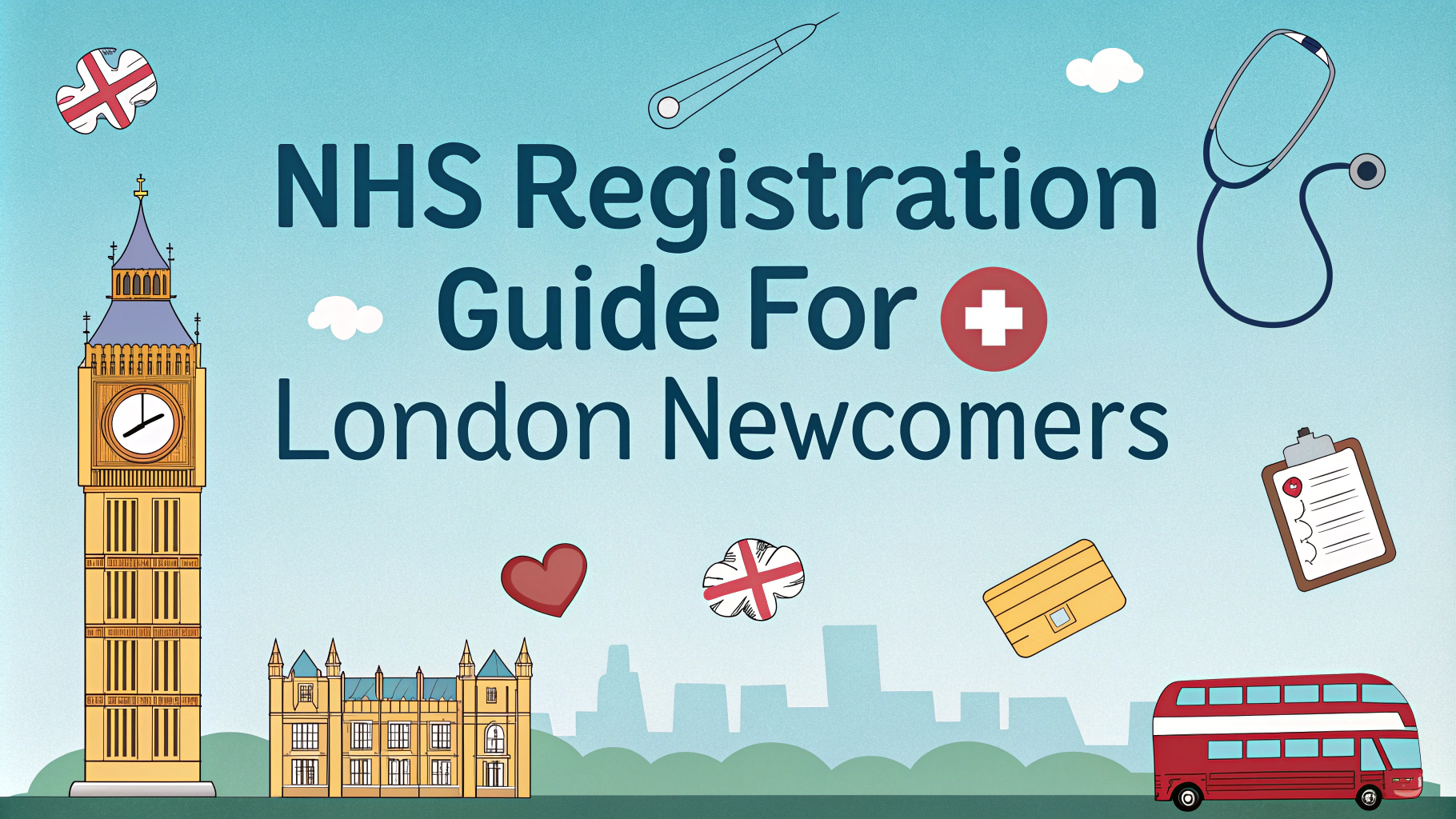Rental contracts in London can be complex and overwhelming, especially for those new to the city or UK rental system.
This practical guide breaks down the essential elements of London rental agreements, common terms, and potential warning signs to watch for when signing a lease.
Whether you’re a first-time renter or experienced tenant, understanding your rights and responsibilities can help ensure a smooth rental experience in London.
Key Terms in London Rental Contracts
- Assured Shorthold Tenancy (AST) – The most common type of rental agreement in London
- Break Clause – Allows either party to end the tenancy early under specific conditions
- Holding Deposit – Maximum one week’s rent to secure the property
- Security Deposit – Limited to 5 weeks’ rent for annual rent under £50,000
Tenant Rights You Should Know
All deposits must be protected in a government-approved scheme within 30 days of payment.
Landlords must provide an Energy Performance Certificate (EPC) and gas safety certificate.
You have the right to quiet enjoyment of the property without landlord interference.
Common Red Flags in Rental Contracts
- Requests for cash payments or deposits outside official channels
- Pressure to sign without proper property viewing
- Missing or unclear terms about deposit protection
- Excessive fees beyond those legally permitted
Required Documentation
- Valid ID and proof of right to rent in the UK
- Proof of address (last 3 months)
- Bank statements (3 months)
- Employment contract or proof of income
- References from previous landlords
Understanding Fees and Charges
Since June 2019, most letting fees are banned under the Tenant Fees Act.
| Permitted Fees | Banned Fees |
|---|---|
| Rent | Admin fees |
| Security deposit | Reference fees |
| Holding deposit | Credit check fees |
| Late rent payments | Viewing fees |
Getting Help and Support
For rental disputes or advice, contact these organizations:
- Shelter: 0808 800 4444
- Citizens Advice: 0800 144 8848
- London Renters Union: membership@londonrentersunion.org
- Property Ombudsman: 01722 333306
Smart Renting Tips
- Always get agreements in writing
- Take dated photos of the property condition at move-in
- Keep copies of all correspondence with landlord/agent
- Read the entire contract before signing
- Verify the landlord’s ownership through Land Registry
Making Your Move Secure
Before signing any rental agreement, ensure you have all documentation in order and understand every clause.
Consider joining a tenant union for ongoing support and advice during your tenancy.
Keep detailed records of all payments, communications, and property conditions throughout your rental period.
Moving In Checklist
- Inventory check and sign-off with photos
- Utility meter readings documented
- Council tax registration completed
- Insurance coverage arranged
- Emergency contacts noted
Maintaining Good Landlord Relations
Professional communication and prompt reporting of issues help maintain positive tenant-landlord relationships.
- Report repairs promptly in writing
- Pay rent on time
- Follow property rules and agreements
- Keep dated records of all communications
Property Maintenance Responsibilities
Landlord’s Duties:
- Structural repairs
- Heating and hot water systems
- Gas and electrical safety
- Fire safety compliance
Tenant’s Duties:
- Regular cleaning
- Minor repairs (e.g., light bulbs)
- Garden maintenance (if specified)
- Proper ventilation
Your Path to Successful London Renting
Successful renting in London requires understanding your rights, maintaining clear documentation, and following proper procedures.
Stay informed about rental regulations and maintain open communication channels with your landlord or agent.
Remember that support services and tenant organizations are available to help navigate any challenges during your tenancy.
FAQs
- What is the typical length of a rental contract in London?
Most London rental contracts are Assured Shorthold Tenancies (ASTs) with an initial fixed term of 12 months, though 6-month and 24-month contracts are also common. - How much deposit can a landlord legally ask for in London?
Since the Tenant Fees Act 2019, deposits are capped at five weeks’ rent for annual rentals under £50,000, or six weeks’ rent for annual rentals over £50,000. - What are my rights regarding repairs and maintenance?
Landlords are legally responsible for maintaining the property’s structure, heating and hot water systems, gas appliances, electrical wiring, and addressing damp issues. Repairs must be completed within ‘reasonable’ timeframes. - Is a landlord required to provide a written contract?
While verbal agreements are legally binding, landlords must provide written terms of tenancy and legally prescribed information, including deposit protection details and the government’s ‘How to Rent’ guide. - What are major red flags to watch for in a London rental contract?
Key red flags include clauses preventing repairs reporting, unreasonable restrictions on guests, demands for cash-only payments, clauses contradicting statutory rights, and attempts to avoid deposit protection schemes. - How much notice must I give to end my tenancy in London?
For fixed-term contracts, notice requirements are specified in the agreement. For periodic tenancies, tenants must provide at least one month’s written notice, while landlords must give two months’ notice under Section 21. - Can my landlord increase the rent during the tenancy?
During a fixed term, rent can only be increased if the contract includes a rent review clause or with tenant agreement. For periodic tenancies, landlords can propose increases once per year with proper notice. - What should I check before signing a London rental contract?
Verify the landlord’s ownership/right to let, EPC rating, gas safety certificate, electrical safety certificate, deposit protection scheme details, and ensure all verbal agreements are included in writing. - Do I need a UK guarantor to rent in London?
Many landlords require UK-based guarantors, particularly for students or those new to the UK. Some agencies offer guarantor services for a fee, or you may need to pay several months’ rent in advance instead. - What fees can landlords or agents legally charge in London?
Under the Tenant Fees Act 2019, only rent, deposits, utility bills, and charges for late rent payment or lost keys are permitted. Admin fees, reference checks, and renewal fees are illegal.








